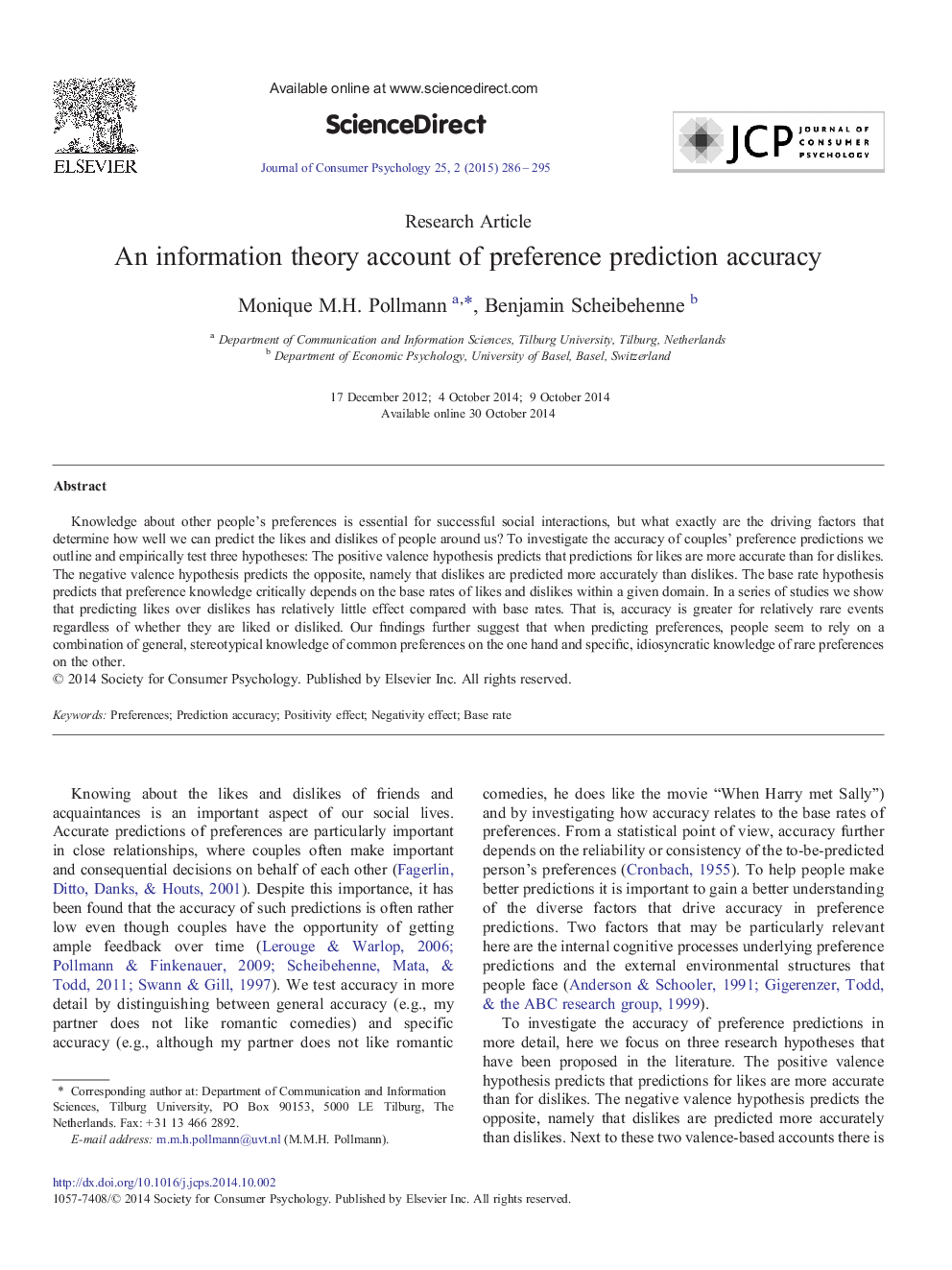| کد مقاله | کد نشریه | سال انتشار | مقاله انگلیسی | نسخه تمام متن |
|---|---|---|---|---|
| 882165 | 911921 | 2015 | 10 صفحه PDF | دانلود رایگان |
Knowledge about other people's preferences is essential for successful social interactions, but what exactly are the driving factors that determine how well we can predict the likes and dislikes of people around us? To investigate the accuracy of couples' preference predictions we outline and empirically test three hypotheses: The positive valence hypothesis predicts that predictions for likes are more accurate than for dislikes. The negative valence hypothesis predicts the opposite, namely that dislikes are predicted more accurately than dislikes. The base rate hypothesis predicts that preference knowledge critically depends on the base rates of likes and dislikes within a given domain. In a series of studies we show that predicting likes over dislikes has relatively little effect compared with base rates. That is, accuracy is greater for relatively rare events regardless of whether they are liked or disliked. Our findings further suggest that when predicting preferences, people seem to rely on a combination of general, stereotypical knowledge of common preferences on the one hand and specific, idiosyncratic knowledge of rare preferences on the other.
Journal: Journal of Consumer Psychology - Volume 25, Issue 2, April 2015, Pages 286–295
